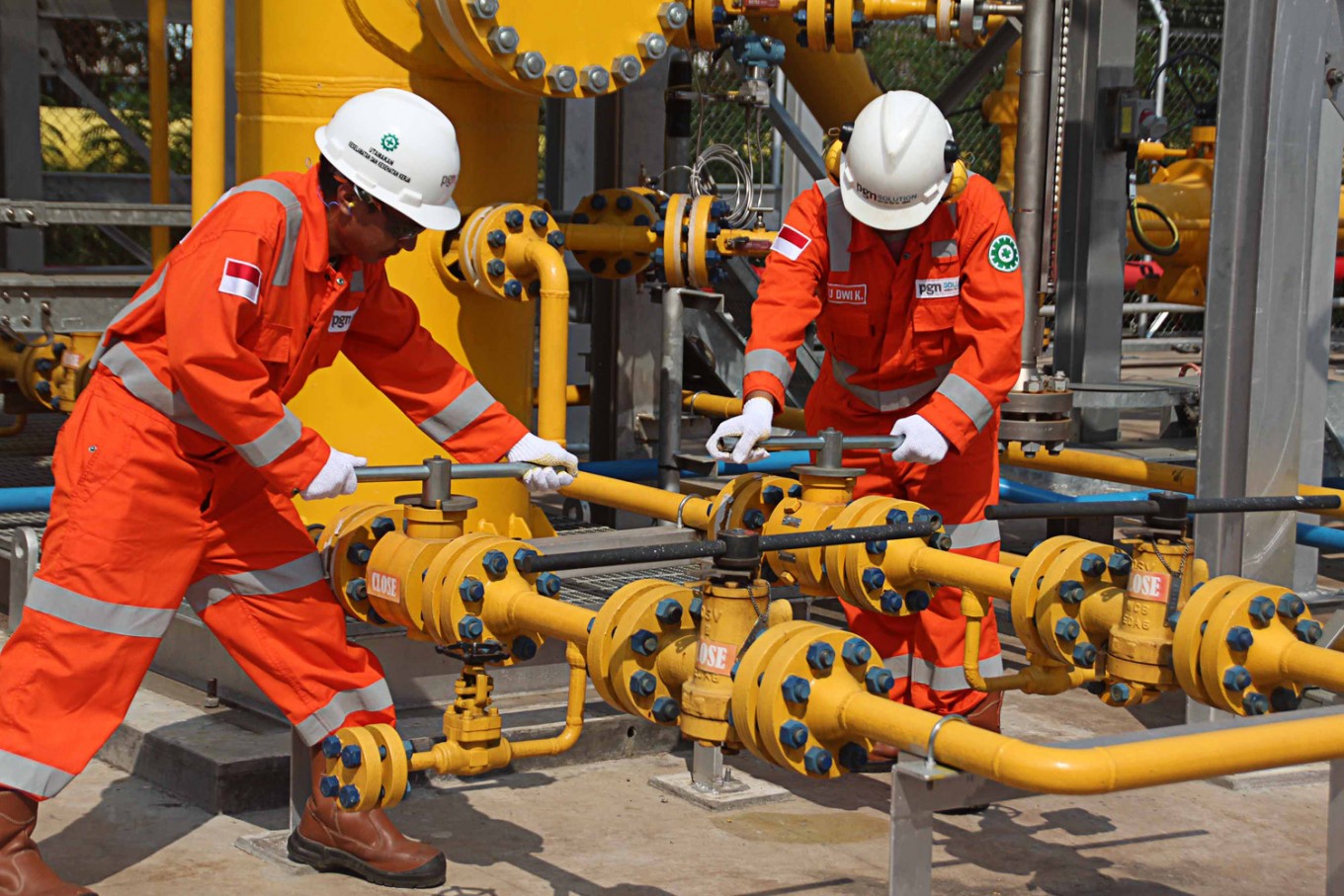Popular Reads
Top Results
Can't find what you're looking for?
View all search resultsPopular Reads
Top Results
Can't find what you're looking for?
View all search resultsState firms told to triple investment to help stoke growth
Change text size
Gift Premium Articles
to Anyone
S
tate-owned companies are expected to triple their investment value in the next two years to reach Rp 895 trillion (US$68.02 billion) in 2018 in support of President Joko “Jokowi” Widodo’s 6 percent economic growth target.
State-Owned Enterprises (SOE) Minister Rini M. Soemarno said the President had urged all state firms to gradually increase their investment value from Rp 285 trillion this year to Rp 450 trillion in 2017 and Rp 895 trillion in 2018.
“It is part of the president’s plan to see 6 percent economic growth by 2018,” Rini said on Thursday, adding that most of the state firms’ investments would be related to infrastructure projects, including toll roads, public houses and electric power houses.
In meeting the target, the government has stressed once again the importance of establishing state-owned holding companies. It has planned to form six holding companies for the oil and gas, mining, food, banking and financial services, and construction and public housing sectors, with the aim of boosting their value, debt leverage and efficiency.
Therefore, those holding companies are expected to be financially independent and even give significant contributions to the state budget so that the government can expedite national development further.
Indonesia will need Rp 5.5 quadrillion for its infrastructure projects from 2014 to 2019, of which 19 percent is expected to be funded by state firms, 40 percent by the state budget, 10 percent by the regional state budget and the remaining 31 percent by the private sector, according to data from the National Development Planning Agency (Bappenas).
The infrastructure projects that will be done in the government’s priority include 2,6000 kilometers of new roads, 49 new dams and 35,000 megawatts (MW) of power plant procurement during President Jokowi’s tenure.
State electricity firm PLN, which is crucial to Jokowi’s electricity supply target, has even planned an 80,000 MW electricity procurement program until 2025, as it calculates electricity supply outside Java will grow exponentially.
“It is in accordance with the spirit of the Nawacita [nine goals] program under President Jokowi’s administration that aims to decentralize national development,” PLN corporate planning director Nicke Widyawati said.
Moreover, Maritime Affairs and Fisheries Minister Susi Pudjiastuti said the country needed to boost the development of infrastructure needed for sea toll roads, including cold storages, so that it could pave the way for integrated logistics services in the future.
She claimed that Russian company Blackspace planned to invest $200 million for the development of 12 to 15 cold storages across the country, while the Indonesian government would inject Rp 1.5 trillion for the project.
Meanwhile, Jokowi has also recently launched the One Fuel Price policy, which aims to make the price of fuel the same in all regions across the country, including Papua and Kalimantan.
The new policy, which is expected to run effectively by year-end, will force state-run oil and gas firm Pertamina to allocate Rp 800 billion in subsidies every year.
“That’s why state firms need to maintain their positive performance, because sometimes they have to make sacrifices in the interest of the people,” Rini said.
Therefore, Rini urged all state firms to collaborate under the planned holding companies to create efficiency and jointly resolve all challenges in the years to come, although the government may need more time to issue a regulation as a legal umbrella for the forming of holding companies.
“We really hope that at least one holding company could be formed before the end of this year. […] There are two most prepared sectors for this plan: mining and oil and gas,” she said.










